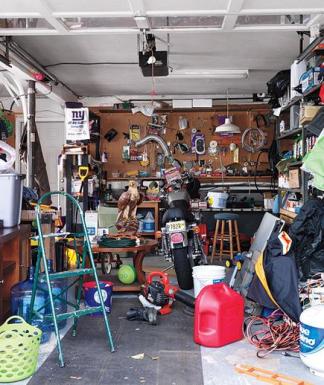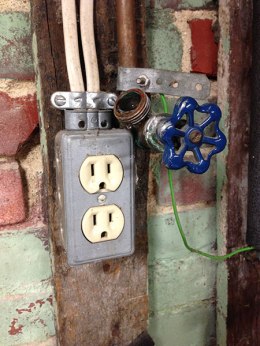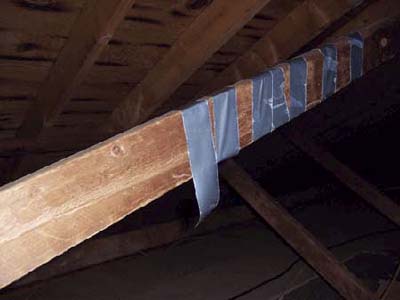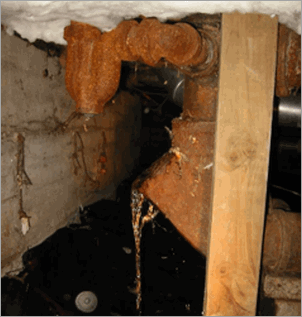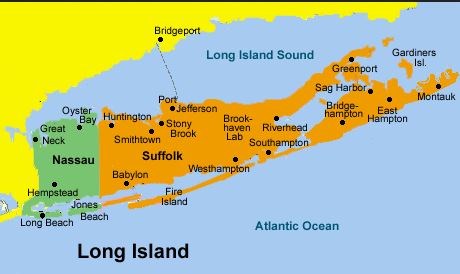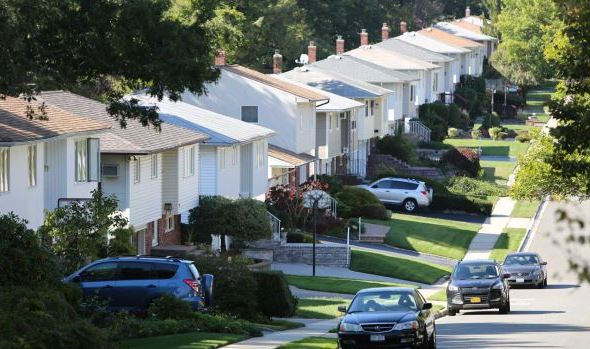
Buying a home is everybody’s dream and probably one of the biggest investments some of us will ever make in our lifetime; well, some of us spend the rest of our natural lives paying for it! Having a home inspection done on the property is of course important if you want to know whether your dream home is ready for your family to move in or not. It might turn out that the house is not worth it after all and you can either use this information to haggle for a lower price or simply walk away from the deal.

Naturally, a few questions about the home inspector that will be inspecting your home and the home inspection process are bound come up. For a start, you want to know that you’re getting your money’s worth, and secondly you don’t want to end up with a shoddy home inspection exercise that leaves you with piles of repair or replacement costs in future.
Therefore, it‘s important that every home buyer asks these 5 questions to the home inspector(s) before hiring.
#1 – Are you registered or affiliated to any professional home inspectors association?
First, you want to establish that you’re dealing with a competent person who has deep knowledge of the ins and outs of the industry. You can’t afford to waste time and money on wannabe home inspectors, remember that.
This of course will paint a clear picture of what they are capable of accomplishing if hired. The logic here is… if a higher public authority say… the NHICC (National Home Inspector Certification Council) can vouch for their ability and recognize their certification(s) as a qualified home inspector, then you can trust their expertise too. However, this is not enough to qualify a home inspector.
Note: You are allowed to ask for proof of registration or affiliation (membership card, licenses, certifications). Any professional will understand and actually produce this evidence for you on the spot hoping to win you over; and without taking any offense at all. You can also ask whether they continue to take any more certification courses to advance their skills. If they are NHI certified the better.
It might seem like an obvious thing to do but Michael Del Greco has noted that very few clients ever ask to see proof of certification or licensing. He humorously points out that his license has only been good for his wallet in all his years of experience. Michael claims he can count the number of times he’s had to produce his license to a client. Check out more from his informative personal view:
Questions To Ask Home Inspectors During Home Inspections
I can count on one hand the times I have been asked one of these important questions.

First question you should ask is one that I have yet to be asked by any home buyer since 1993 despite having 10,000 or so clients (except by a few who have read this). “May I please see your home inspector license”?
Please ask. I have been carrying ID’s in my wallet for years not only because I am required to do so by law and so once a year or so I get to show them to a client. If your inspector can’t find his or hers it is time to stop the inspection and try again with another company… see more real experience questions
#2 – Can I be there during the inspection?
Not many home inspector’s will answer “no” to this question although a few would rather you just sit and wait for their report. The reason why you want to be there during the inspection is simply because this is the time you get to learn key details about your new home. You get to find out where all the main shutdown switches are, or to formulate your own opinion and prioritize the problems pointed out during the inspection. Here you can continue to ask for more clarifications on all problems the home inspector identifies as you go about the inspection. You will be surprised that some problems uncovered during this exercise will only take cheap and easy DIY fixes. Here is what Tara-Nicholle Nelson has to say about this issue:
5 Questions to Ask Your Home’s Inspector

Your home inspector’s job is to point out everything, within the scope of the inspection, that might need repair, replacement, maintenance or further inspection – or seems like it might be on it’s last leg. But they also tend to be experienced enough with homes to know that no home is perfect. Many times, I’ve asked this question about an item the inspector described as “at the end of its serviceable lifetime” and had them say, “I wouldn’t do a thing to it. Just know that it could break in the next 5 months, or in the next 5 years. And keep your home warranty in effect, because that should cover it when it does break.”… read more
#3 – How much will it cost me and how do I pay you?
This is very important for the overall success of the deal. Go over the numbers and see if you can agree on a price because this will determine whether business will proceed or not. Actually, it determines whether you get to ask question #4!
Once you agree on a price, try to find out how the home inspector wants to be paid; check, PayPal, credit card or cash? Finally, this is the best time to throw in some bargaining skills and try to haggle for a discount especially if the mode of payment chosen by the home inspector has extra transaction fees.
Paul Wilson however seems to think that the question of price should come last. He also goes on to say that cutting corners in order to save a few dollars is not always the best idea. “There will always be someone who charges less! The question is – are they your best choice?”, he adds. Here’s an extract from his article:
20 Questions for your Home Inspector
A question that almost always gets asked first and yet should be in fact, one of the last and least important in your decision process. What good is a $50 discount if the inspector you are hiring isn’t the most qualified or experienced available. When you are about to make one of the largest decision and investment of a lifetime, this is not the time to think about saving a few bucks by cutting corners. You need experience on your side and lots of it!

The amount of the fee should be the least of your worries when you consider how much you are planning on investing in a home. Home inspection is no different than many other professional occupations – you generally get what you pay for. Cheaper is rarely the best. A professional home inspection conducted by a fully qualified individual is well worth the expense… check out the full list
#4 – How long before I get the inspection report?
Once you have the price issue done, or the prices sound reasonable enough for consideration, then you can continue to ask about the inspection report. Some home inspectors will give you full report immediately after the inspection exercise while others will only provide a sketch report and deliver a full report later (usually 24 hrs to a few days).
The main concern here is having enough information to help you decide whether to see the deal through or cut and run. You can also ask the home inspector to give you a honest personal opinion on the status of the house on offer. See if they would consider buying the property if they were in your position. If you’re satisfied with the answer you get, then its time to move to the last question.
#5 – Can you recommend a good contractor for the serious identified repairs or replacements?
Any good professional will be ready to part with this information without butting an eyelid. You know the saying “Show me your friends and I can tell the kind of person you are”? Well, it works on everyone, including home inspectors.

The home inspector should have a solid network of readily available professionals remotely related to their industry. If an inspector cannot name at least five recommendations from the top of their head then this is a red flag; please stop what you’re doing with this home inspector and move on to the next. The inspector should be in a position to point you to a good electrician, plumber, property lawyer, real estate agent or even fellow home inspector.
So there you have it… these 5 questions will definitely lead you to the right decision and the right home inspector. Sometimes you can end up with two to three options interviewing several home inspectors and this can provide a problem by itself. The main thing however is to concentrate on who gives you the best deal in terms of price and all the areas they cover during the inspection. In fact this should come as question #6! How deep does their inspection exercise go?
Image Credit: Image 1 Image 2 Image 3 Image 4 Image 5 Image 6
Q & A Session With Your Home Inspector was first published on Home Inspector Experts
 In a bid to revolutionize the industry as leading Queens Home Inspectors, we have decided to run with the interests of our clients at heart. This would remain one of the most affordable Home Inspection brands in the market. We have a strong system that enables us to navigate the changes in the market without putting any negative pressure on you. Everything we do is steeped in a plan that takes into cognizance all the world best practices. We are not backing down on our commitment to keep building on the success we have achieved over the years.
In a bid to revolutionize the industry as leading Queens Home Inspectors, we have decided to run with the interests of our clients at heart. This would remain one of the most affordable Home Inspection brands in the market. We have a strong system that enables us to navigate the changes in the market without putting any negative pressure on you. Everything we do is steeped in a plan that takes into cognizance all the world best practices. We are not backing down on our commitment to keep building on the success we have achieved over the years.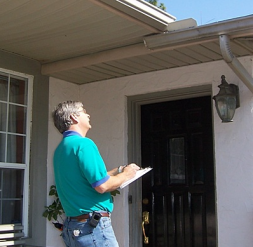 Here is a brief outlay of what we do: We give you the breakdown of your Structure which serves for the purpose of meeting any of your personal or professional requirements. Our poise for excellence makes us relevant to those who buy or sell properties. Other areas we serve are Environmental Issues, Electrical, Exterior, Interior and Home Systems (which include Air Conditioning, Heating, Plumbing and Ventilation).
Here is a brief outlay of what we do: We give you the breakdown of your Structure which serves for the purpose of meeting any of your personal or professional requirements. Our poise for excellence makes us relevant to those who buy or sell properties. Other areas we serve are Environmental Issues, Electrical, Exterior, Interior and Home Systems (which include Air Conditioning, Heating, Plumbing and Ventilation).






